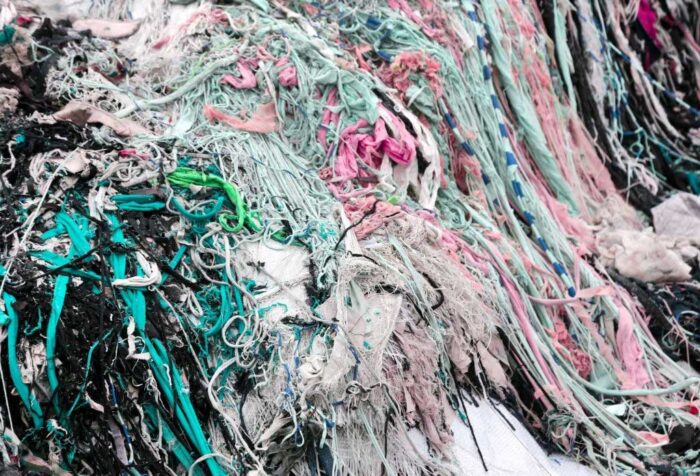Tiruppur is a major textile and knit wear hub contributing to 90% of total cotton knit wear exports from India. The textile industry provides employment to over 600 thousand people and contributed to exports worth US$3.0 billion in 2019–20. Here we showcase cutting waste, banian waste, BT Cotton waste, Cotton thread waste, Cotton Yarn Waste, Banian yarn waste, Hosiery waste, fine fabric waste, cotton waste for cleaning and cotton fabric cutting waste dealers based at Tiruppur, Tamilnadu, India.
The cutting waste comes in different varieties and colours. The processed cotton waste is used in various industries for cleaning machinery.
The cutting waste costs INR28-30 per Kg and the finished cotton yarn waste is sold to industries for INR75 per KG (2021 data)
Special machineries are available for processing cotton cutting waste into cotton yarn/thread.
CUTTING WASTE | BANIAN WASTE
Cotton recycling prevents unneeded wastage and can be a more sustainable alternative to disposal. Recycled cotton can come from second-hand clothing or from textile waste or leftovers which are then spun into new yarns and fabrics. There are some notable limitations of recycled cotton, including separation of materials that are cotton/polyester mix. There may also be limits to durability in using recycled cotton.
Cotton can be recycled from pre-consumer (post-industrial) and post-consumer cotton waste. Pre-consumer waste comes from any excess material produced during the production of yarn, fabrics and textile products, e.g. selvage from weaving and fabric remnants from factory cutting rooms. Post-consumer waste comes from discarded textile products, e.g. used apparel and home textiles. During the recycling process, the cotton waste is first sorted by type and color and then processed through stripping machines that break the yarns and fabric into smaller pieces before pulling them apart into fibre. The mix is carded several times in order to clean and mix the fibres before they are spun into new yarns.
The resulting staple fibre is shorter than the original fibre length, meaning it is more difficult to spin. Recycled cotton is therefore often blended with virgin cotton fibres to improve yarn strengths. Commonly, not more than 30% recycled cotton content is used in the finished yarn or fabric.
Because waste cotton is often already dyed, re-dyeing may not be necessary. Cotton is an extremely resource-intense crop in terms of water, pesticides and insecticides. This means that using recycled cotton can lead to significant savings of natural resources and reduce pollution from agriculture. Recycling one ton of cotton can save 765 cubic metres (202,000 US gal) of water.
More details here: https://en.wikipedia.org/wiki/Cotton_recycling
Mr. Jaffer Sadiq
JS Tex,
3C, Sagunthala compound,
Thillai Nagar, Tirupur,
Tamilnadu, India
+91 9842265342
+91 8825251038
You may also be interested in this machine manufacturer:

Need white banian cloth cutting
Lawaniajp@gmail.com
200 kg
Need sample first
Megma rfid and labels pvt ltd
B5 udyogkendra extn 1 ecotech iii greater noida 201306 india
White Rs 70-75/- per KG
Colour Rs.40-50/- per KG
5% GST Extra
Packing & Shipping charges extra.
Minimum order qty: 1 MT
Need good quality baniyan yarn waste about 1500 kg every month
Let me know the cost
White Rs 70-75/- per KG
Colour Rs.40-50/- per KG
5% GST Extra
Packing & Shipping charges extra.
Minimum order qty: 1 MT